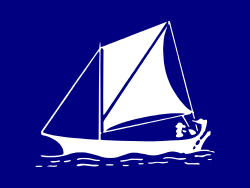Singapore Alliance | |
|---|---|
 | |
| Malay name | Perikatan Singapura |
| Chinese name | 新加坡联盟 Xīnjiāpō Liánméng |
| Tamil name | சிங்கப்பூர் கூட்டணி Ciṅkappūr kūṭṭaṇi |
| Founded | 2 June 1961 |
| Legalised | 24 June 1963 |
| Dissolved | 4 December 2025 |
| Headquarters | Singapore |
| Ideology | |
| Political position | Right-wing |
| National affiliation | Alliance Party (until 1965) |
| Colours | |
The Singapore Alliance Party (abbreviation: SAP), or simply the Singapore Alliance, was a political alliance in Singapore. It was formed on 2 June 1961 with the support of the ruling Alliance Party in Malaya along with the leader of the opposition Lim Yew Hock, who saw the merger with Malaya for Singapore to be a Malaysian state synonymous to Penang or Malacca. [1]
Contents
SAP consisted of the local branch of Malaya's United Malays National Organisation (UMNO), local chapters of the Malayan Chinese Association (MCA), Malayan Indian Congress (MIC), and Lim's Singapore People's Alliance (SPA). [2] It was notable for contesting the 1963 general election with a large number of candidates but was ultimately unpopular with voters, having failed to win any seats.
On 7 August 2025, the Ministry of Home Affairs had sought proof of SAP's existence along with 13 other political parties and alliances due to its failure to comply with the Foreign Interference (Countermeasures) Act 2021. If there is no proof of existence provided to the government within three months, the Registrar of Societies will deem a party or an alliance as officially defunct. [3] The alliance was officially deregistered on 4 December 2025. [4] [5]